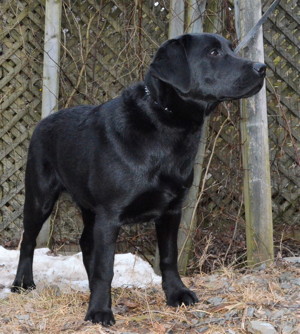HUNT TEST RULES AND REGULATIONS (CKC)
12 Standards
Table of Contents | Prev | Next
12.1 Dogs should perform equally well on land and in the water, and must be thoroughly tested on both in accordance with the testing requirements of these regulations.
12.2 The judges must score the dogs on (a) their natural abilities including marking (memory), style, perseverance, courage, hunting; and (b) to relatively greater degrees in Senior, Owner Handler Master and master Hunting Test, their trainability as evidenced in steadiness, control, response and delivery.
Decisions not to award a qualifying score must be the consensus of the judges.
12.3 The ability to mark accurately is of primary importance. A dog which marks the fall of a bird, uses the wind and takes direction from its handler is of great value.
12.4 After delivering a bird to its handler, a dog should stand or sit close to its handler until given further orders.
12.5 When ordered to retrieve, a dog should proceed quickly and eagerly on land or into the water to marked falls, or on the line given it by its handler on falls it has not seen. A dog should not disturb too much ground or area and should respond quickly and obediently to any further directions its handler might give.
A dog which pays no attention to many whistles and/or directions by its handler can be assumed to be weak in response, and unless in the opinion of the judges there exist valid mitigating circumstances, the dog should be graded low or receive a grade of "0" in trainability.
12.6 In marking situations, a handler may give the dog a line in the direction of the fall, provided that such lining is accomplished briskly and precisely. Conspicuously intensive lining suggests a weak marking ability and the dog must be graded low in marking.
- The handler shall not line a dog in the direction of any fall or gun station until all falls are down
- In the Senior Hunt Test the handler of the working dog or honouring dog should remain silent from the time of the first shot until the dog is released by the judge.
- In a Master Hunt test the handler of the working and honouring dogs should remain silent from the time the first shot is fired until the dog is released by the judge. However, the handler may very quietly give an occasional command to facilitate a difficult-to-see mark without incurring a penalty. A Master Hunter dog is a polished hunting companion and is expected to be steady. Any speaking to the dog once the first shot is fired detracts from a perfect performance and must be reflected in the trainability score. Repeatedly speaking to the dog within one series or during more than one series indicates either an undesirable lack of steadiness or a lack of marking ability and must be scored "0". If a dog indicates with forward motion an attempt to retrieve and is stopped by the handler (a controlled break) he must be scored "0". A handler may speak quietly to his dog to prevent forward motion but repetition of this fault will necessitate a "0" in trainability. At any time, if the judges deem the handler to be loud or intimidating, the dog will be scored "0".
- If the handler of an honouring dog in either Senior or Master Hunt tests makes a loud noise or command which might interfere with a competing dog at the judges discretion may turn the offending dog out of the test.
12.7 In marked retrieves, if a dog, after having been sent to retrieve: (1) returns to its handler before finding the bird, with or without having been called in, except in those cases of confusion of the dog as to whether it was really ordered to retrieve; (2) stops its hunt; or (3) fails to pick the bird up, actually leaving it after finding it; it shall be sufficient cause, unless there exist in the opinion of the judges valid mitigating circumstances, to grade the dog "0" in marking or perseverance.
A recast occurs when a dog makes a start toward a marked fall, but stops within a short distance of the line (the distance is usually limited to 15 feet or 4.5m, and should be agreed upon between the judges) and returns or is recalled to the handler. The dog is then sent to retrieve again. This is most often attributed to confusion on the part of the dog as to whether it was sent to retrieve the first time. It is not considered a recast when a dog goes to the area of the fall, fails to find the bird and returns (or is recalled) to the handler. This must be evaluated as a lack of perseverance.
12.8 A dog which fails to find a bird which, in the opinion of the judges, it should have found, shall be graded "0" in marking.
12.9 Upon finding the game, a dog should quickly pick it up and return briskly to its handler. A dog retrieving a decoy shall be graded "0" on trainability.
- A dog should not drop its game on the ground, but distinction should be made between deliberately dropping a bird, and readjusting a bad hold or losing its grip or running over uneven terrain.
- Upon returning, a dog should deliver the bird promptly and tenderly to its handler. A dog that is unwilling to release a bird on delivery should be scored low in trainability, and if compelled to do so by severe methods should, unless in the opinion of the judges there exist valid mitigating circumstances, be graded "0" in trainability.
- A dog cannot receive a qualifying score if it renders a bird unfit for human consumption. Both judges are responsible for inspecting the bird and agreeing that the dog alone was responsible for the damage.
12.10 In Junior, Senior, Owner Handler Master and Master Hunt Test, a dog should come to the line tractably at heel and sit promptly at the point designated by its handler and remain quietly where placed until given further orders. Retrievers which bark or whine on line, in a blind or while retrieving should be scored low in trainability. Loud and prolonged barking or whining is sufficient cause to justify grading a dog "0" in trainability.
12.11 In Senior, Owner Handler and Master Hunt Tests, a handler may not hold or touch a dog to keep it steady, or noisily or frequently restrain a dog on line, except in extraordinary circumstances, from the time the first bird is being thrown until the dog's number is called. Violation of any of the provisions of this paragraph is sufficient cause to justify a grade of "0" in trainability.
12.12 In Senior, Owner Handler Master and Master Hunt Tests a dog that goes to the area of a fall, hunts, fails to find, and then leaves the area to hunt for another fall, or that drops a bird it is retrieving and goes for another, shall be considered to have switched. Unless in the opinion of the judges there exist valid mitigating circumstances, a dog that switches shall be scored "0" in perseverance in Senior and Master Hunt Tests.
12.13 In Senior, Owner Handler Master and Master Hunt Tests, failure to enter either rough cover, water, ice, mud or any other situation involving unpleasant or difficult going for the dog, after having been ordered to do so several times, is sufficient cause to grade the dog "0" in perseverance.
Table of Contents | Prev | Next



